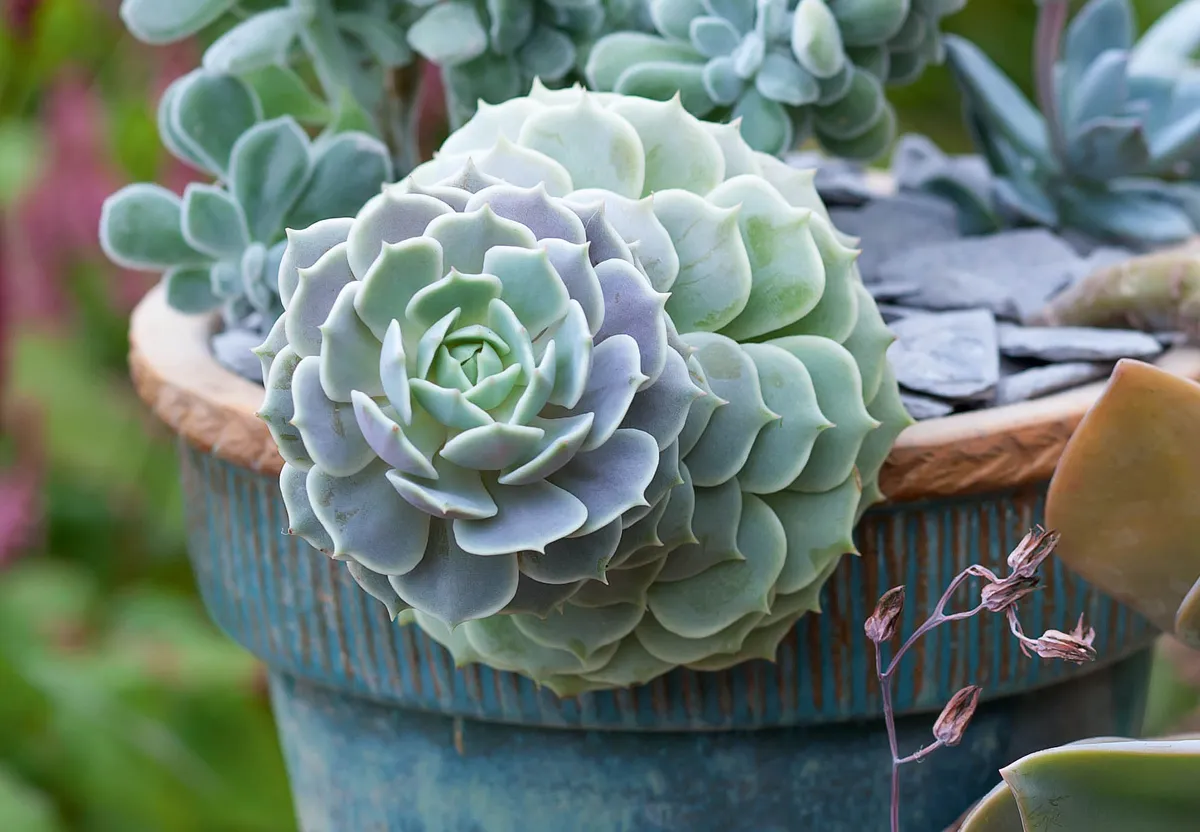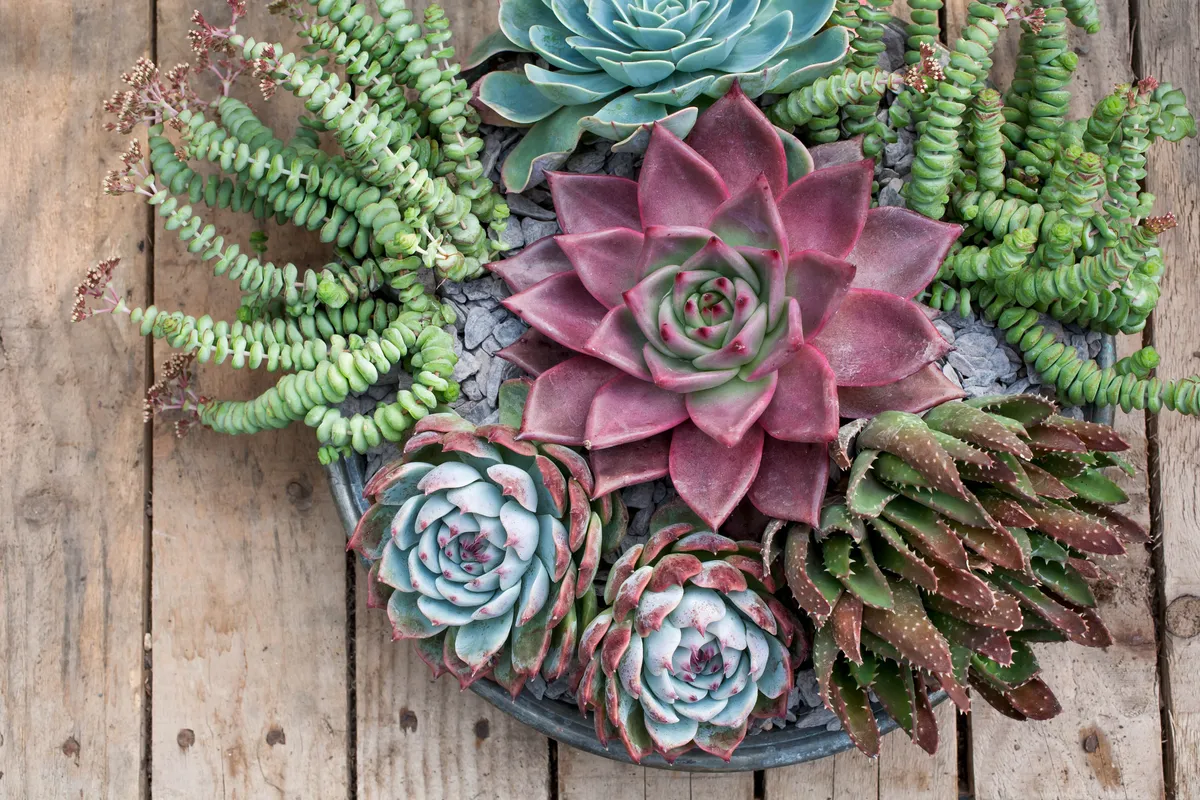Sculptural, symmetrical, abstract, exquisite, absurd: how one might describe the wonderful plants known as succulents. Found throughout the world in places where water is scarce, succulents are plants that thrive on neglect. The most colourful and interesting succulents hail from North and South America and Africa, relishing sun, despising wet, tolerating cold but perishing in frost.
Most succulents are small, so make great house plants that can be displayed on a shelf or window sill. They can also be grow outside in the garden in the summer months. Succulents are widely available in garden centres, at house plant retailers and florists, or online. A wider range of more interesting varieties can be found at plant fairs and specialist nurseries.
More on
- The best soil for succulents
- How to water succulents
- The best succulents to grow
- How to propagate succulents
What are succulents?
Succulent plants have fleshy leaves that store water. This means that they don’t need to be in continuously damp soil in order to draw up moisture like other plants. They can survive long periods of drought and do not need much watering.
There are many different types of succulents, including echeveria, crassula, sedum, lithops, haworthia and more. Read our guide to the types of succulents to grow.
Jump to:
- Where to grow succulents
- Soil for succulents
- How often to water succulents
- Propagating succulents
- How to display succulents
How to look after succulents

Where to grow succulents
Succulents are perfect for the patio in summer and ideal for the conservatory or a sunny windowsill year round. Ensure they are growing in a bright, sunny spot.
Soil for succulents
Good drainage is the secret of success when it comes to succulents. Pot succulents in a loam-based compost mixed with equal parts of sharp sand or horticultural grit. Or buy a specialist succulent compost.
Growing succulents in pots and containers is the best way to control the drainage. It also makes it easier to move them into a conservatory, greenhouse or covered porch during the coldest months.
Small pots with large drainage holes are ideal, as are shallow pans. If growing in large pots, partially fill these with hydroleca, using compost only in the top third.
How often to water succulents
Succulents growing outside probably never need watering. If growing them indoors, allow the compost to become dry in between waterings – this replicates the infrequent but torrential downpours they would experience in the wild. Do not water succulents in winter.
The exception to this rule is aeoniums, which go dormant in the summer – their growing season is in spring and autumn. So do not water them in summer – they do not need it. Here's more on how to water succulents.
Propagating succulents
Succulents are very easy to propagate, creating more plants for you and your friends and family. Read our detailed guide to propagating succulents.
How to display succulents

Succulents lend themselves to creative, long-lasting arrangements that do not need much maintenance. Choose a container that enhances the colour and appearance of the plants to show them off.
This collection of succulents in an old enamel bowl demonstrates the diversity of form and texture of these wonderful plants. When combining succulents consider both how the forms and textures will work together, and for best results try to combine plants that need the same watering regime.
Take inspiration from our succulent planting ideas:
A succulent pot display for winter
A container display using crassula and sedum